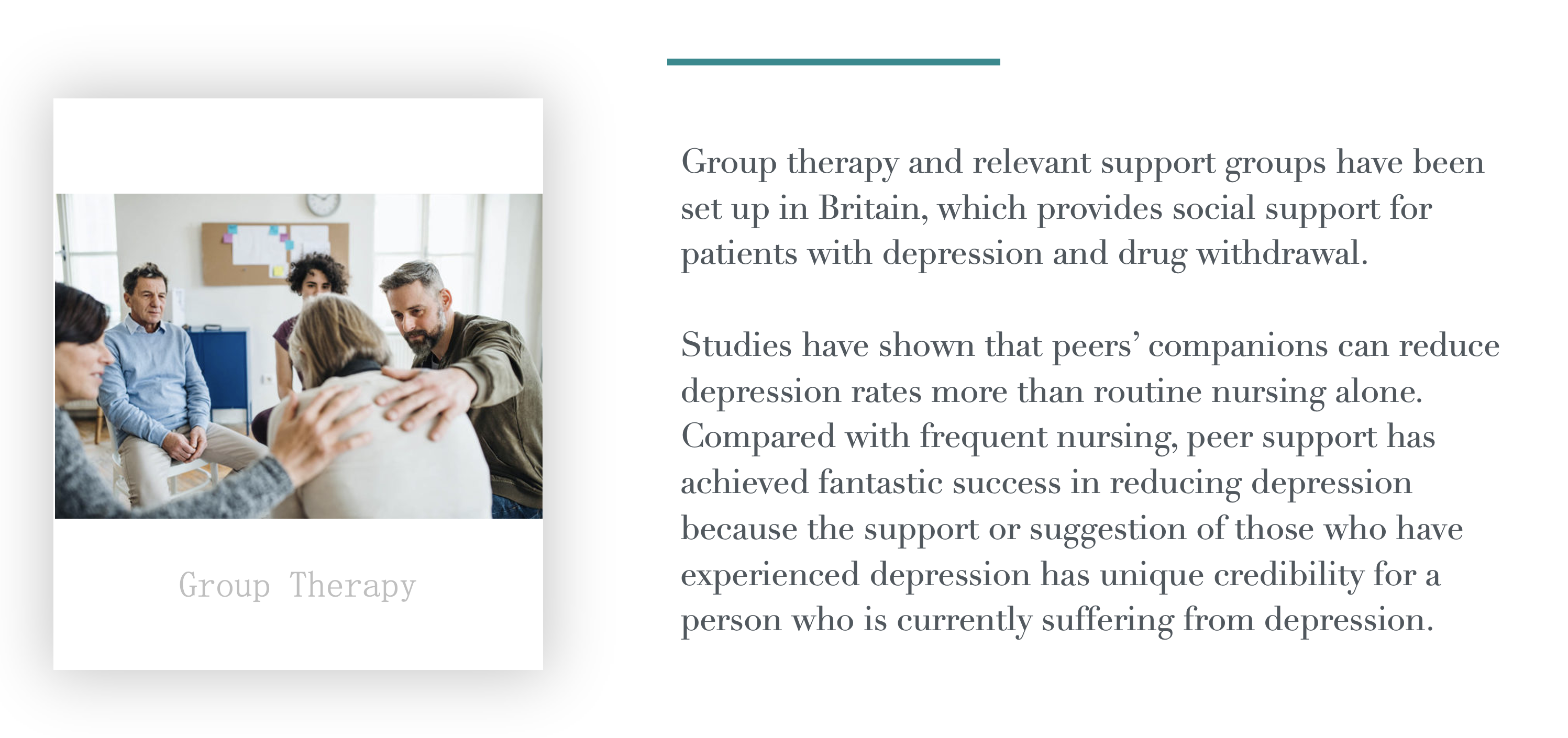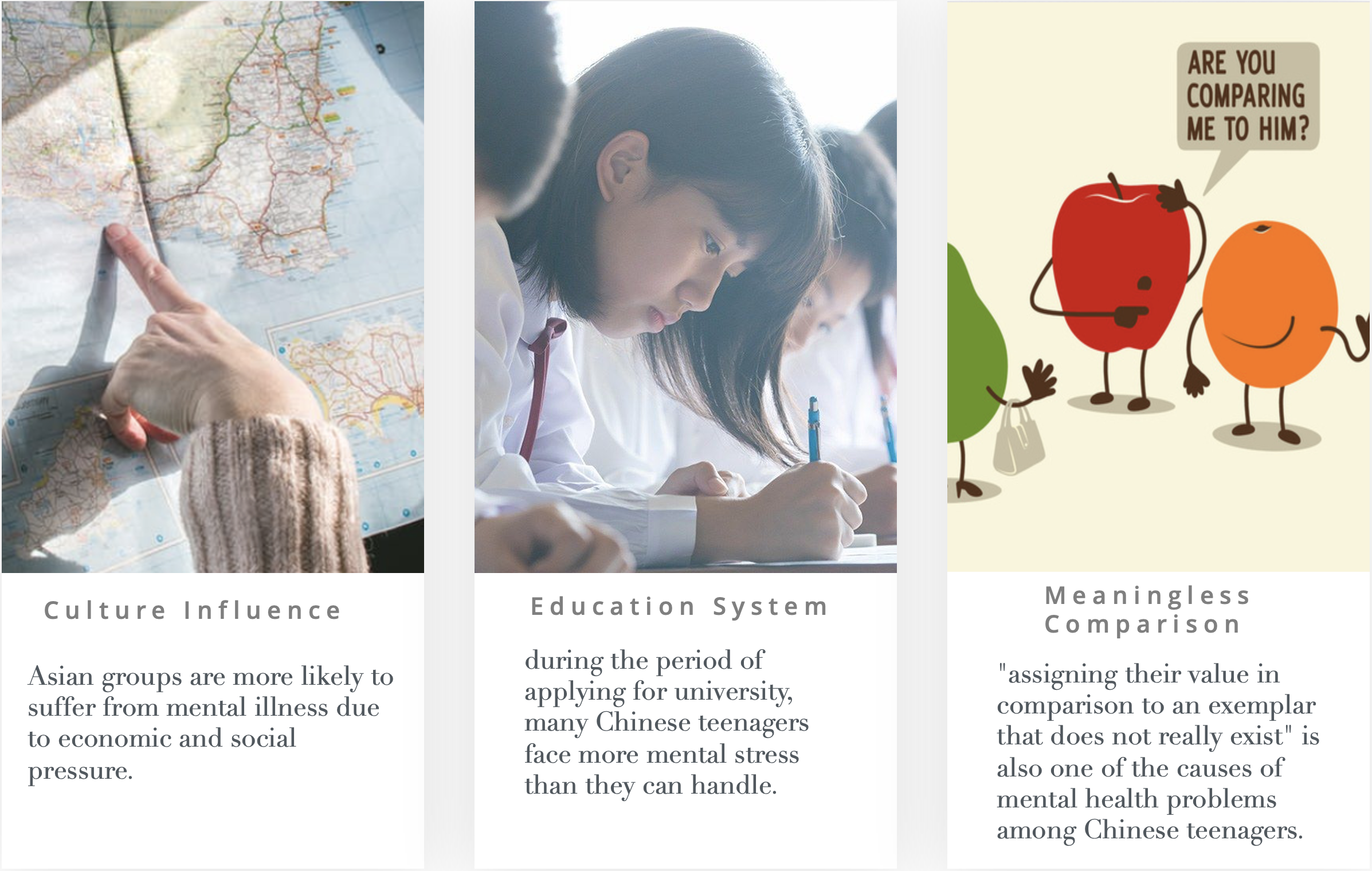Online Group Therapy for Chinese Teenagers Mental Healthcare | Jianqi Yin
Foreword:
Hi everyone, welcome to my exhibition, You may find it easy in these years, the rate of people with depression is getting higher(Chang & Kim Koh, 2012), and even there is someone around us who suffer from depression, but we cannot find a suitable way to give him or her a hand when we really want to comfort them. This situation makes patients and their family and friends helpless. Especially in the most of Asian countries, it is not difficult to hear about patients do not willing to openly talk about their illness and refuse to accept professional treatments (Shafi et al, 2014). This project pay attention to the Chinese teenagers’ mental healthcare, and trying to combine the group therapy method with online App to give these teenagers a platform to release their mental stress.
Why should we pay attention to the impact of depression mood?
Video: LIVING WITH DEPRESSION | Kat Napiorkowska
The video made by Kat Napiorkowska shows daily symptoms of the people with depression, watching the video may help us to better understand their feelings and emotions. As we can see from the video, The people with depression feels headache, longly. They always wearing a social musk because they have to, and they feel ashamed of what they have done. These symptoms cost their energy more and more but they have no idea how to get rid of these bad situations.
This research hopes to find a way to build up a warm space for depression group to output their negative emotions without any misgiving, and providing a chance for them to rebuild their social circle by online platform.
Introduction:
The research direction of my Major Research Project (MRP) is online group therapy for Chinese teenagers mental healthcare. This project mainly focuses on two aspects: Group therapy is the first aspect, according to the research material shows that those people who have recovered from depression are valuable for people who are suffering from depression, their words are more persuasive for patients, and they can get close to patients easier (Rottenberg, 2011). Therefore, developing group therapy in the form of fraternity is the main point of this project, but the form of fraternity is not popular in China, so the development of this project is a good chance to make up the corner of this vacancy.

(Scoping review. )
In addition, the influences of cultures cannot be ignored, depression is stigmatized in some Asian countries because in the culture of these countries, depression represents cowardly (Shafi et al, 2014). And a big part of Chinese teenagers lack the cultivate of emotional expression due to the cultural background, they are not good at releasing their mental pressure face to face. Reckon for this aspect, I am trying to use the method of an online platform to give these teenagers a hand to open their hearts online and find their sense of belonging.

(Background research)
Furthermore, considering the different development levels of regions, we can transmit more advanced treatment methods quickly and accurately from developed regions to developing regions through an online platform to make sure patients can get the newest information in time no matter where they are.
Meet Jianqi Yin:
 Jianqi Yin Jianqi Yin
Inclusive Designer/Illustrator Toronto, Ontario She/Her
Jianqi Yin (she/her) is a Chinese designer. Currently in her second year of the Inclusive Design (M.Des) at OCAD University. She focuses on discovering the potential problems around her, and combines the solution of practical problems with the form of artistic expression. She is currently exploring the impact of the group therapy on mental healthcare, especially focuses on Chinese teenagers’ depression treatment, and trying to exhibit this topic in the form of online fraternity. |

